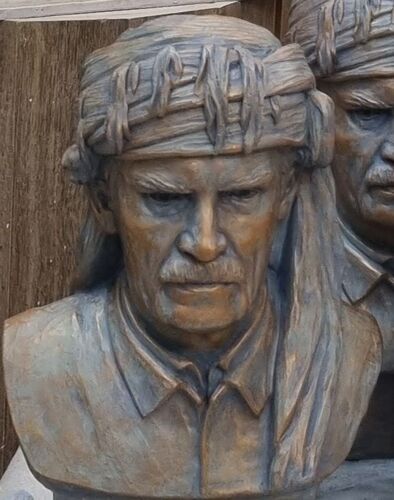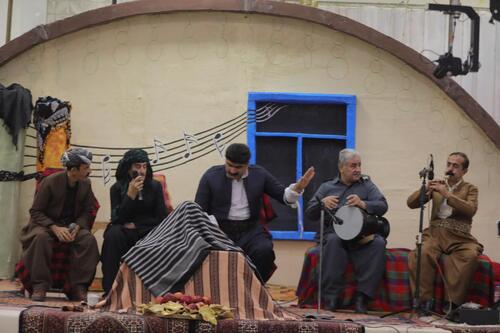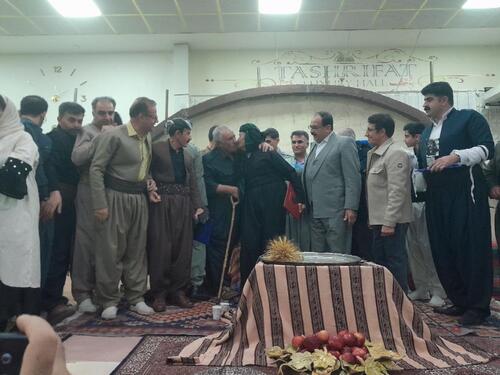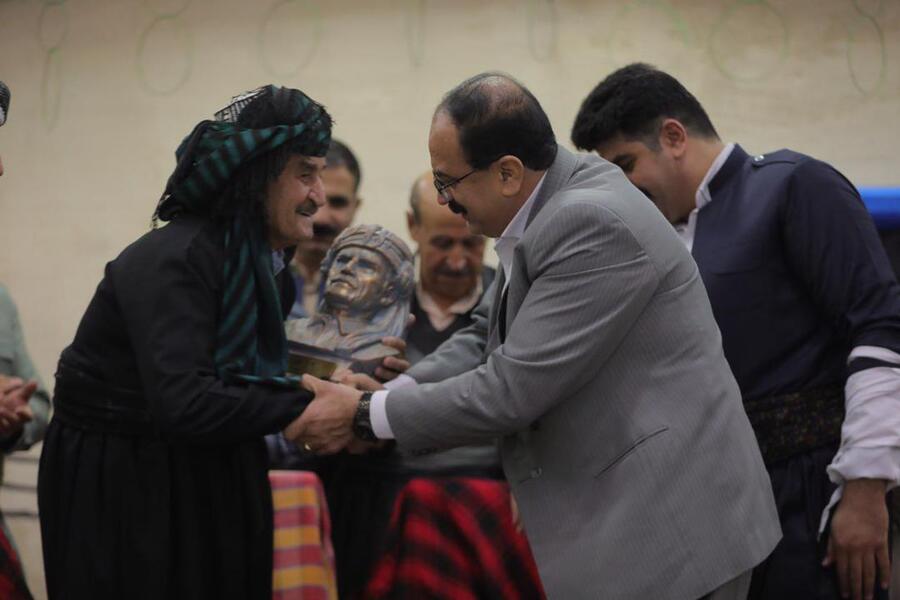Dr. Azad Mukri
Oral literature is a great source for preserving the language and most of the social traditions that are protected within this genre of literature. All those nations that have rich oral literature have a stronger language in writing and creation. However, those nations who have been under the hegemony of their oppressor nations and the dominant language of their oppressors have not been able to protect their literature and enhance it, so, they have applied the dominant language as a window for expressing their feelings and social memories; as a result, their own language has become weaker and less capable leaving that nation unable to create and produce literary and artistic works.
Fortunately, Kurdish oral literature is one of the richest oral languages in the world. The fourteen-volume work of "Salah Payaniyani" is good evidence to show this richness which is about the oral literature of only one of the Kurdistan regions that is, "Oral Literature of Mukeriyan". In this great work, Payaniyani has recorded all the proverbs, old sayings, phrases, expressions, sentences, tongue twists, ironies, and symbolic phrases of the Kurdish language that are used in this part of Kurdistan extracting them from songs, stories, and common words of people with their meanings and form of application to create such a linguistic source that one could claim, this work has enhanced Kurdish language to a higher level.
In addition to this, the talented writer, Ahmad Bahri, has also collected Kurdish Bayts and Heyrans (two forms of Kurdish songs) in six volumes called "Ganji sar ba Mor" (the sealed treasure chest). This work includes all the Kurdish Bayts and Heyrans in five thousand pages. However, in addition to the oral literature that includes the narrations, words, phrases, terms, and proverbs collection, both of Salah Payaniyani and Ahmad Bahri's works that have collected the Kurdish Bayts and Heyrans with their interpretations on the footprint have become two great sources and treasures of the Kurdish language. The Kurdish nation, however, has so many more oral sources in other parts of Kurdistan that have been narrated for hundreds of years from one generation to the other and from one artist to the other these pieces of literature have been improved and enhanced by the artists from the East part of Kurdistan that have played a great role in protecting and improving them. One of these artists from the East part of Kurdistan who has played a great role in developing Kurdish oral literature in the field of music is called "Mohammad Ahmadi" known to people as "Seyyed Mohammad Safaei". He is a well-known artist in all parts of Kurdistan. Seyyed Mohammad Safaei was born in 1932 in the Hawshar Region.
This artist was born in "Blues" village in the "Safakhana" district in Hawshar region. He belongs to the Seyyed family of Safakhana (according to Islam, Seyyeds' ancestors are from the prophet Mohammad's family). Although he was illiterate, however, due to his talent in Kurdish music, he had recorded his Kurdish songs and Maqams sixty years ago in a folklore way. He was also actively visiting different regions of Kurdistan to participate in weddings and singing in such ceremonies as family gatherings or national parties. These ceremonies were much more exciting because of Seyyed Mohammad Safaei's presence.
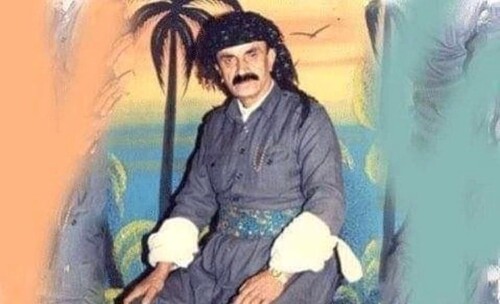
Most of Safaei's songs have a folklore theme and some of them are actually folklore songs, but this artist, due to his special performances and his particular way of singing those songs, was highly well-known in all regions of Kurdistan. That is, Seyyed Mohammad Safaei had a special method of singing those songs especially the songs that had a happier rhythm and were known as dancing songs. This special method could be seen in his expression, presenting and performing them which made him very popular among various social classes.
He also recorded several works in a professional way on Kermashan, Tehran, and Sna radio stations. Safaei's special method has made most of the Kurdish artists in the music field pay a great deal of attention to his works. For example, the famous "Kamkar" group has covered some of this artist's songs in their "Spi" album.
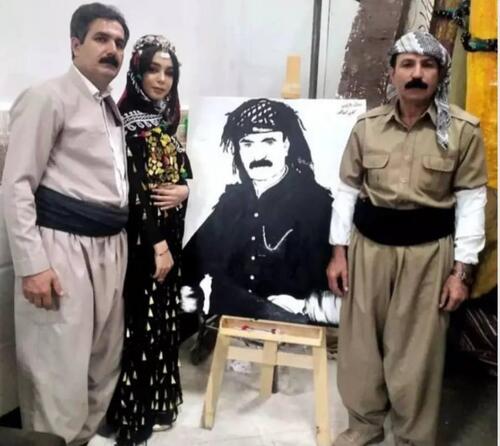
Seyyed Mohammad Safaei lived in the Southern part of Kurdistan for three years. He lived with the great Kurdish artist, Hassan Zirak, at that time. He learned many things from Hassan Zirak at that time. He had a vast social relationship with many people. Seyyed Mohammad Safaei's special feature of his works is that he deviated from most of the common norms of singing and performing songs. Even his words and the way he expresses them are different from Kurdish expression norms in a way that it represents a freer atmosphere for the artist to be able to express the songs out of the social cliches.
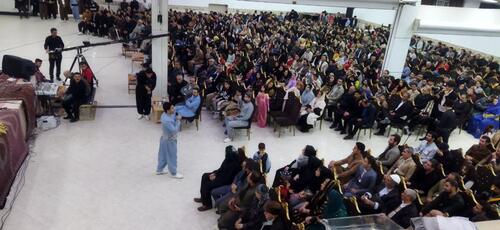
Seyyed Mohammad Safaei's Prize
Due to the influence this artist had in reviving Hawshar's music and folklore, in a meeting to acknowledge this artist's efforts in "Tikab" city in Hawshar region on December 26, 2023, for the first time a prize under his name, "Seyyed Mohammad Safaei's Prize" was granted while most of Tikab's artists, and writers had participated in the meeting. This prize will be granted to artists and literary figures who have gained success in Hawshar's artistic or literary fields. In this meeting, some of the artists from Tikab sang Seyyed Mohammad Safaei's songs.
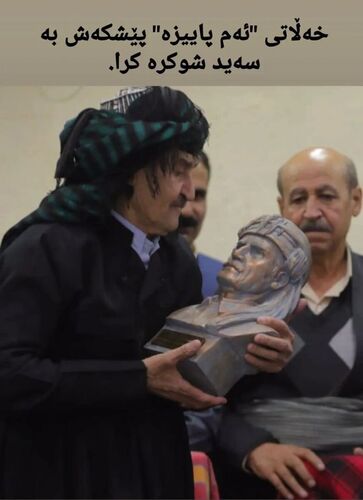
In addition to this, the statue of Seyyed Mohammad Safaei that was made by the great Kurdish artist, Hadi Ziyaddini, was unveiled and the first prize of this meeting was granted to "Seyyed Shukra", a well-known artist from Hawshar region. Seyyed Shukra is one of the great Bayt singers of the Hawshar region. The most famous Bayt he has composed himself and sung is "Aziz and Kubra". It is worth mentioning that great artists such as "Mazhar Khaleqi", "Naser Razzazi", Najma Gholami", "Shaho Andalibi", "Hazhar Zahawi" and … had sent their video messages for this meeting.
The annual Prize of Seyyed Mohammad Safaei is a good sign in reviving Kurdish music, especially in the Hawshar region.
